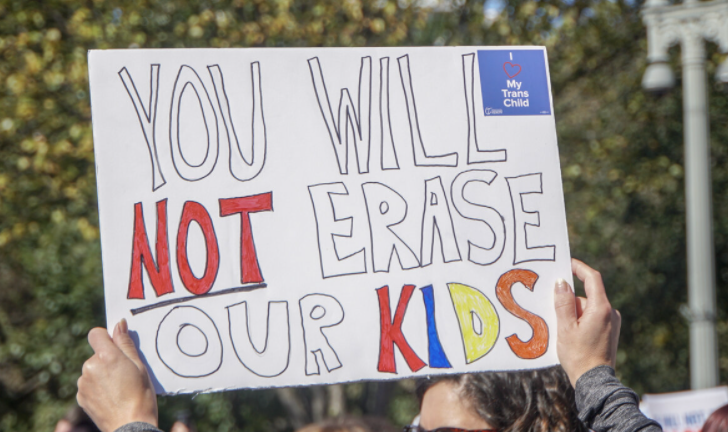“Don’t Say Gay” bill damaging to queer students, surrounding communities
On Tuesday, March 8. the Florida Senate passed the Parental Rights in Education bill, also known as the “Don’t Say Gay” bill, which has caused controversy due to it limiting any discussion of gender identity and sexual identity in elementary classrooms.
The Florida Senate passed the Parental Rights in Education bill, known more commonly as the “Don’t Say Gay” bill, with a vote of 12-8 on Tuesday, March 8. Under the bill, teachers would not be allowed to speak to elementary school students about LGBTQ+ topics that are not considered “age-appropriate or developmentally appropriate for students.” Parents would also have greater authority to take legal action against school districts they believe to be in violation.
This bill is controversial, and for good reason. This law will increase the already-prevalent issue of stigma surrounding queer issues and identities. The classroom is where children can finally develop unique perspectives, learn about relevant topics and interact with people who are both similar and different to them. If schools don’t allow kids to learn about the diversity of people that surround them everyday and their history, they will be left with little to no understanding of who the LGBTQ+ community is and why learning about social issues, or at the bare minimum, queer and trans identities, is so important. This is not just about LGBTQ+ issues, but about basic education and empathy.
The bill originally included a section that would require teachers to “out” students to their families after six weeks if they found out that they identified as LGBTQ+. “Outting” an LGBTQ+ person, defined as disclosing their sexual orientation or gender identity without their consent, can endanger people who live in environments where their identity isn’t accepted by the people around them. Although this amendment to the bill has since been removed, the sentiment of the overall bill still aligns with silencing LGBTQ+ voices.
Not knowing simple things about who you are and having the voices of your community silenced is limiting, disrespectful and harmful to LGBTQ+ people of all ages.
— Lea Rivel ’22
Kids need to see themselves reflected in classrooms, no matter who they are. Not knowing simple things about who you are and having the voices of your community silenced is limiting, disrespectful and harmful to LGBTQ+ people of all ages.
This applies to issues of LGBTQ+ discussions as well as many others. Prohibiting the discussion of the issues or voices of any sort of demographic or community further isolates that group from the rest of society, therefore pushing any social progress back a bit further each time and creating a climate of homogenous thinking.
Not being able to discuss LGBTQ+ history, topics or even acknowledge the existence of these things is not only offensive, but a true disservice to children. If students don’t know about LGBTQ+ issues or even just things so simple as LGBTQ+ identities, it will create jarring experiences for them and harmful ones for LGBTQ+ kids later on. It is so much healthier to learn about the diversity of the world that surrounds us earlier on in our development–not just for the sake of education but for the sake of LGBTQ+ individuals. For example, reports from GLAAD have found that increased knowledge about LGBTQ+ people leads to lower levels of discomfort toward this community, and thus can reduce anti-LGBTQ+ discrimination.
Although more people are coming out and support for the community is higher than previous years in history, LGBTQ+ people are still a minority and face a plethora of issues, such as bullying, inferior health care opportunities and homelessness. The reduction of these issues can start at a young age in schools. Shaping students to be more accepting of these identities provides a better framework for societal progress later in life.
Now that the bill has passed in the Senate, it moves to the desk of Florida Governor Ron DeSantis, and if passed, it could easily move progress in the education system and in young society by years.

Social Media Director Lea Rivel ’22 enjoys broadening her horizons and exploring new sights. Rivel spent the summer of 2021 traveling.
“I went to...




























































